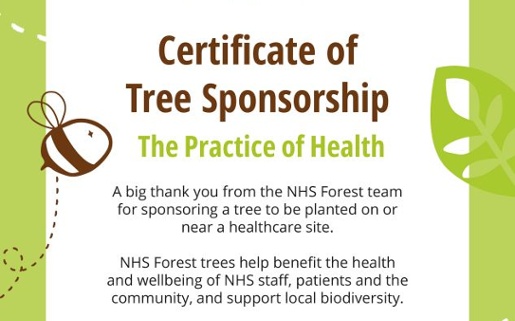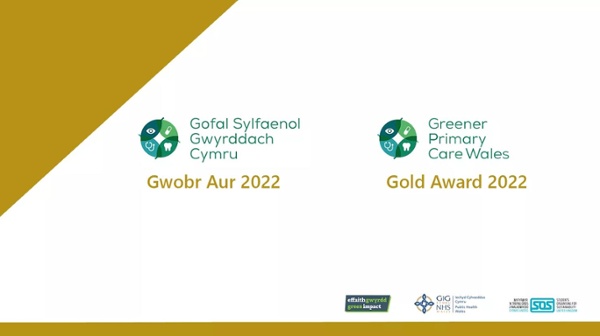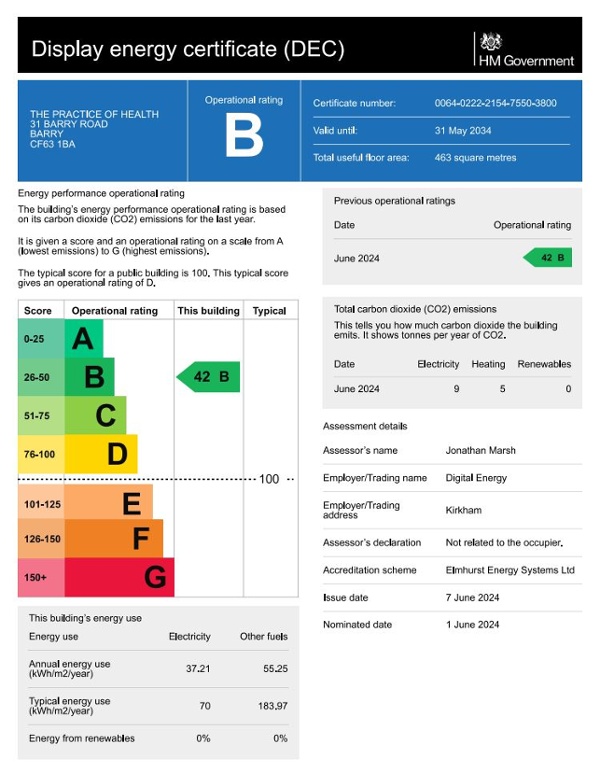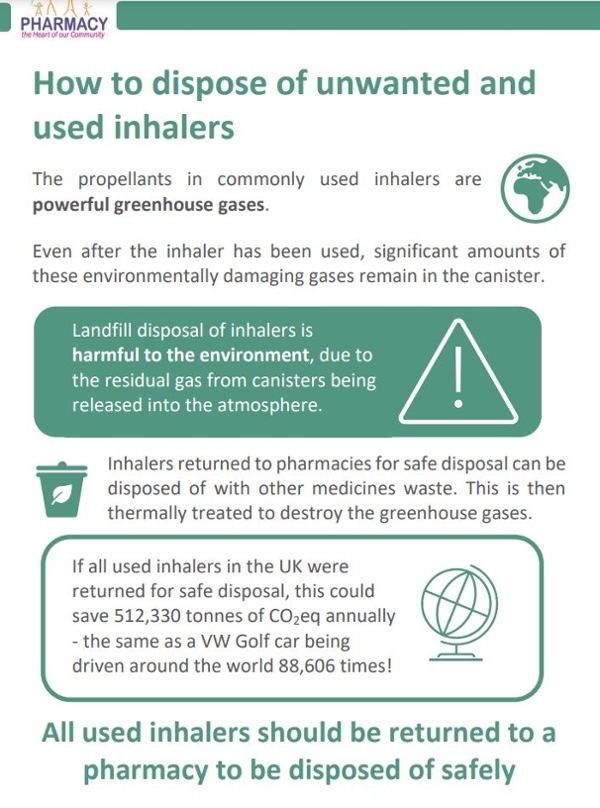Our Green Promise

The last few years we have experienced a range of extreme weather events, from heatwaves to flooding. These extreme weather events show the urgency with which we need to act. This practice is delighted to be signed up to the Greener Primary Care Framework and Award Scheme and we are actively taking steps to reduce our carbon footprint.
A Welsh Government Climate Emergency was declared in 2019. This sends a very clear signal that we will no longer allow politics and the disruption of leaving the EU to distract us from the challenge of climate change, which threatens our health, economy, infrastructure and natural environment. We fully support the Government's decision and commitment to achieve a carbon neutral public sector by 2030, and recognise the climate crisis and catastrophic effect on human health of not acting decisively and urgently as outlined in the RCGP Royal College of General Practice and Climate Emergency article.
The climate emergency is also a health emergency. There is an urgent need to reduce our global gas emissions. The NHS is working to reduce its carbon footprint to net zero by 2040, with an ambition to reach an 80% reduction by 2028 to 2032. We as a practice therefore aim to enhance the health of our practice population and offer sustainable choices in how we operate and the services we offer to our patients. This will provide benefits to the NHS, your health and the carbon footprint of healthcare.
We have already made a number of sustainable changes to our practice following the initiation of the Greener Primary Care Wales Framework, and were very pleased to receive a recognition award in August for our work, which resulted in the planting of a tree in our area, in our name.

We have made the following changes in order to become a more sustainable practice:
- Changed all lights to LED energy efficient lights.
- Switched our office paper and supplies to greener alternatives (recyclable and eco alternatives).
- Active recycling of our non-clinical waste, where possible.
- Purchased energy efficient kettles and urns, to prevent frequent boiling and wasting of energy.
- Purchase of a Bike Stand, to promote staff and patients to use transportation by bicycle more. Don't forget we have a bus stop right outside!
- Improvement to our green spaces by adding bird boxes, to encourage bio-diversity and opportunities for our local wildlife to thrive.
- Added two benches to our premises, to support the benefits of green spaces to mental health and wellbeing.
- Promote better behaviours in practice, such as turning off electronics not in use.
- Car sharing where possible, and an increase in travelling to work by bike by our practice team.
We are very happy to announce that at the end of Phase 1 of the Greener Primary Care Wales Framework 2022, our practice has been awarded a GOLD certificate for our participation in the scheme. We are glad to have participated in one of the many steps that the NHS is taking towards sustainable improvement and a commitment to net zero, and are pleased with the recognition of our efforts.

Climate change affects us all and can have negative impacts on individual and population health. We all need to do our part to mitigate climate change, including primary care practices. The framework from Public Health Wales has been designed to help independent primary care contractors (community optometry, general practice, community pharmacy and primary care dental practices) to improve the environmental sustainability of their day-to-day practice. That is why we, as a practice, have taken part in the framework for 2022. We have recently achieved an energy performance Operation Rating B, which we are extremely pleased with.

We aim to continue to make positive changes to our practice policies and procedures in order to maintain our established changes, and take further steps where possible to reduce our carbon footprint moving forward. This is our commitment to both ourselves and our community to become more sustainable and economical, in order to do our part to help with the carbon crisis.
What steps can you take?
There are a number of steps that we can take as individuals to help reduce our carbon footprints, both at home and in our work. There are a wealth of online resources available to you to research suggestions that you may be able to easily impliment, you may even be suprised to realise you are already doing your part for the environment and to reduce your carbon footprint. The following link can be used as a very handy tool for actions that can help you to set sustainable goals, and to make a real impact.
The Lazy Person's Guide to Saving the World - United Nations Sustainable Development
With regards to your health and medicines, we would like to make a number of suggestions that would benefit the environment and your health care:
- Only order your medications as needed, and do not stockpile. This reduces medicines wastage. Medicines currently account for 25% of greenhouse emissions within the NHS, with inhalers making up 3% of them.
- Use sustainable methods of transportation to attend our practice where possible, including walking and public transportation. A bus stop is available right outside our practice gates, with regular buses available throughout the day.
- Choose a local pharmacy to collect your medication to reduce your car journeys around our area. We conveniently have a pharmacy directly across the road, no more than a 2 minutes walk away.
- Sign up for pharmacy collection service - let us send your prescription directly to your nearest pharmacy. Request forms are available via our App and also at our reception desk to give your consent and nominate a pharmacy. Alternatively, speak to your pharmacy regarding automatic prescription ordering and collection.
- Dispose of your inhalers sustainably - did you know that gases released from your used inhalers which are dumped in household waste release potent greenhouse gasses into our atmosphere which will remain for approximately 270 years? To prevent this, simply return your used inhalers to your pharmacy who will destroy your inhalers sustainably in a process that destroys the propellant gases.
Reducing the climate change impact of inhalers: environmentally safe disposal
A small number of medicines account for a large portion of the emissions with inhalers making up 3% of them. Certain inhalers (pMDIs) currently use hydrofluorocarbon gases (HFCs or ‘F-gases’) as propellants. When used inhalers are disposed of in domestic waste, the residual HFCs and gases are likely to be released into the atmosphere and can contribute to climate change.
The NHS wants to increase the frequency of the greener disposal of used inhalers. Inhalers returned to pharmacies for safe disposal will be incinerated at high temperature; this process destroys the propellant gases, so they don’t escape into the atmosphere. Steel and aluminium from inhaler canisters may be recovered and recycled at some incinerators. The NHS is also taking other actions, such as offering patients alternative, lower carbon inhalers, where clinically appropriate and supporting people to use their inhalers properly.
To do your part, simply return your used inhalers to your pharmacy. Do not dispose of these in household waste.
